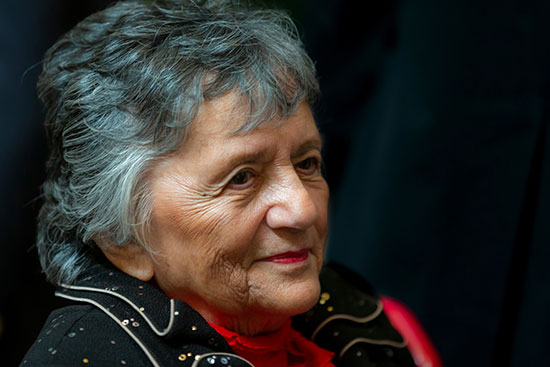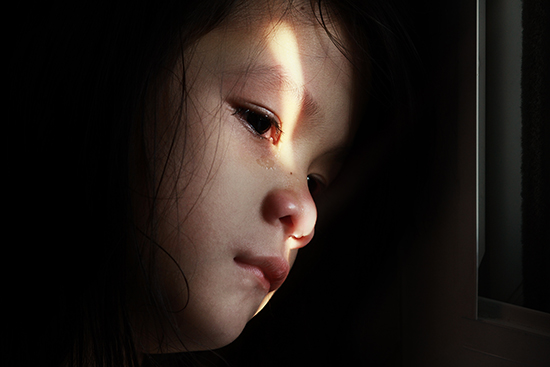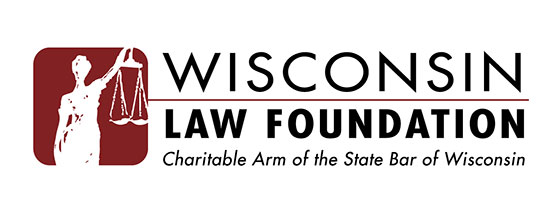Justice Abrahamson: Blazing a Trail for Women

In “Shirley Abrahamson: A Legacy of Judicial Service in Wisconsin” (Wisconsin Lawyer, May 2019), Joe Forward examined the storied career of Justice Shirley Abrahamson, who was the first woman on the Wisconsin Supreme Court, appointed by Gov. Patrick Lucey in 1976 before her first election in 1979. When she retired in July, Justice Abrahamson had served 43 years on the supreme court – almost half as chief justice. She is the longest-serving justice in state history.
A reader wrote in:
Reader: Dear Justice Abrahamson: Thank you wholeheartedly for being such an inspiration to those of us who followed down the trail you cleared. At the time, it was so thick and dense that you had to blaze your way through it with a machete and lots of sweat and hard work! You were a shining pillar reminding us that it was possible for women to go to law school and then pursue whatever career path we chose – whether that be practicing law, teaching, working in an organization, being a judge, or any combination.
And finally, my utmost thanks for the sometimes difficult but always immensely important years you devoted to the Wisconsin Supreme Court. Wisconsin would not be the same without your service. I wish you all the best. With gratitude and respect.
Kristine A. Euclide
Madison
We Want to Hear from You! Submit a Letter to the Editor
Wisconsin Lawyer provides a forum for members to express ideas, concerns, and opinions on law-related subjects. Send comments to wislawyer@wisbar.org (include “Letters” in the subject line), or mail to Wisconsin Lawyer “Letters,” P.O. Box 7158, Madison, WI 53707-7158. Limit to 500 words. Writing guidelines available.
Connect With Us Online. Post comments to articles
online, and find us on Facebook, Twitter, LinkedIn, YouTube, and Instagram.
Wisconsin Lawyer Article Expands Conversation about Child Abuse – to Estonia and Beyond

Our article, “Child Abuse: Beware the Unsubstantiated Finding” (Wisconsin Lawyer, September 2018), has had a major impact on the discussion of unsubstantiated child abuse cases not only in Wisconsin, but nationally. We have gotten calls, letters, and emails from around the country from individual litigants and some professionals relating their experience with unsubstantiated cases. Not only did we receive positive feedback from attorneys and child welfare advocates from across the United States, there were also emails from Estonia, India, and Scotland. Who would have thought?
The article also generated substantial interest in Wisconsin. A conference on child sexual abuse in Milwaukee at the end of February 2019 distributed the article, and highlighted the issues of unsubstantiated findings. The State Bar Family Law Section featured this issue in its annual conference for the experienced attorney track.
Thank you for bringing this critical issue to light and starting an important conversation. Wisconsin Lawyer™ is well read!
Lori S. Kornblum
Marquette University Law School, Milwaukee
Daniel Pollack
School of Social Work, Yeshiva University, New York City
Sheltering Animals of Families Experiencing Domestic Violence

In “Domestic Abuse Injunctions: 7 Steps to Protecting Survivors and Their Pets” (Wisconsin Lawyer, May 2019), Morgan Kathleen Stippel said many domestic abuse survivors do not know resources are available to protect their pets from their abusers. A domestic abuse injunction is one such resource.
Judges and circuit court commissioners can issue temporary domestic abuse injunctions and grant domestic abuse injunctions, preventing abusers from “removing, hiding, damaging, harming, or mistreating, or disposing of, a household pet.” Stippel provided steps to follow to ensure that domestic abuse injunctions protect domestic abuse survivors and their pets.
Readers provided other resources:
Reader: In the Milwaukee area, we have the Safe Haven Program, offered in partnership by Sojourner Family Peace Center and the Wisconsin Humane Society. This program offers up to 60 days of shelter for animals of families affected by domestic violence. The program recognizes that many domestic abuse survivors are unable to leave an abusive situation due to fear for their animal’s safety and tries to help address that issue.
More information on the Safe Haven Program may be obtained by contacting the Sojourner Family Peace Center at (414) 933-2722.
Lynne English
WEC Energy Group, Milwaukee
Reader: As a matter of logistics, if a petitioner is worried about where their pet will go during this time, the Wisconsin Humane Society has a program where someone will foster a victim’s pet for up to 60 days. www.wihumane.org/services/shelter-for-domestic-violence-victims.
Carolyn E. Garski
CPI Inc., Milwaukee
Another Perspective on Cuba

I’m writing in response to Attorney Scott Winkler’s May 2019 letter regarding Joe Forward’s article, “Cuba: A Perspective from Wisconsin” (Wisconsin Lawyer, April 2019). I too traveled to Cuba but in March 2017. Yes, I saw many slums, but I also saw mid-level neighborhoods and some super rich as well. A communist country also has problems of unequal distribution of wealth as does the United States. I noted that the darker the skin, the more likely the person was to be in a slum and the lighter, the rich areas – also like the United States.
Private enterprise was just beginning so there were some B&Bs, a few shops mostly selling art items, and quite a few restaurants in what used to be homes. The food was plentiful and absolutely delicious, and that doesn’t count the drinks. The music was great, and the people wonderful. Internet coverage was spotty. The first place we stayed was quite nice, and the second more like a Girl Scout camp but clean.
Several gay bars had opened up and some LGBT expats had returned, and one in fact was running the national sex education department. While discrimination existed, it’s no different than what we face here.
What the letter failed to mention is that Cuba has an education and literacy system that has repeatedly won awards from the United Nations and has been implemented worldwide. Cuba has a nearly 100 percent literacy rate, higher than the United States. They scour the countryside for the most talented kids in a variety of fields and invest in them to get high-level education in the city to build the ranks of the country. We visited many schools and though plain, they were functional.
Cuba also has a first-rate medical system, and their number one export is doctors. They have a neighborhood system of one doctor per 1,000 persons for free basic care, and most medications are free. After the United States boycotted them, they had to develop their own medication and they did. They now hold patents for some AIDS medication that the United States wants but cannot buy due to its own stubbornness.
There is still a personality cult, but it’s declining. People did not feel free to criticize the government. Given the attacks on journalists and protesters here, we may be going the same way. People also made much more money working in the private sector (mainly tourism) than for the government. Our tour guide was in fact a history teacher but made much more as a guide especially with the tips.
I lived in Russia for four years and they had the same problem – under communism they had money but nothing to buy; under capitalism they have lots to buy but no money. Having things is not the measure of success or happiness. Good education and adequate medical care are far more important. Many Americans value money and things far too highly. Change is happening in Cuba, but they must be very careful not to follow the Russian example where communism simply became gangster capitalism.
Dianne Post
Phoenix, Ariz.
Wisconsin Law Foundation: A Gift to Honor Friends

In “Celebrating Life and Building a Legacy” (Wisconsin Lawyer, June 2019), Larry Martin encouraged donations to the Wisconsin Law Foundation (WLF) as an ideal way to celebrate individuals past and present while supporting the future of the American legal system. Because the WLF essentially lives off 4 percent of the corpus each year, contributions help to build a permanent legacy that will serve generations to come. To make an “in memory/or in honor of” contribution to the WLF, contact Beth Drake at bdrake@wisbar.org.
Tom Basting, a State Bar past president, responded:
Reader: Larry, I just finished reading your latest column in the Wisconsin Lawyer. You mentioned my long-time partner and dear friend Dave MacDougall. Dave was a brilliant lawyer who was loved and respected by all who knew him. When he passed, I too honored his memory by making a contribution to the Wisconsin Law Foundation. Supporting the activities of the Foundation is, in my opinion, a wonderfully appropriate way to honor the memories of our brothers and sisters in the legal profession. Thank you for honoring Dave.
Thomas J. Basting Sr.
Madison
